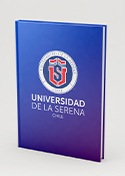Preservice Teacher Professional Identity: Influence of the Teacher Educator and the Teacher Education Model
| dc.contributor.author | Cuadra-Martinez David, Castro-Carrasco Pablo, Oyanadel-Veliz Cristian, Gonzalez-Palta Ingrid, Zivkovic Predrag, Sandoval-Diaz Jose, Perez-Zapata Daniel | |
| dc.date.accessioned | 2024-11-28T20:30:21Z | |
| dc.date.available | 2024-11-28T20:30:21Z | |
| dc.date.issued | 2023 | |
| dc.description.abstract | The objective of this study is to estimate the association between the following variables: teacher professional identity, the teacher education model adopted, the type of teacher educator, and academic progression of teacher education students. A purposive and convenience sampling process was used to recruit 662 preservice teachers attending teacher education programs at three Chilean universities. A sociodemographic survey and teacher professional identity scale were administered to these preservice students. Data were analysed using Spearman correlation, the Kruskal-Wallis test, and multiple linear regression. Results how different types of teacher educator profiles and teacher education models positively correlate with professional identity; furthermore, levels of professional identity were found to differ in connection with students' level (year) within their teacher education program. It was also found that the profile of teacher trainers, who are also schoolteachers, and the critical-intellectual educational model are predictors of teacher professional identity. In the discussion, these results are analysed based on the literature. | |
| dc.identifier.doi | http://dx.doi.org/10.14507/epaa.31.7631 | |
| dc.identifier.uri | https://publicacionesabiertas.userena.cl/handle/123456789/161 | |
| dc.language | English | |
| dc.publisher | ARIZONA STATE UNIV, MARY LOU FULTON TEACHERS COLL | |
| dc.subject | EXPERIENCE | |
| dc.title | Preservice Teacher Professional Identity: Influence of the Teacher Educator and the Teacher Education Model | |
| dc.type | Article |
